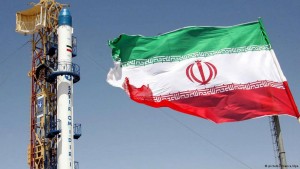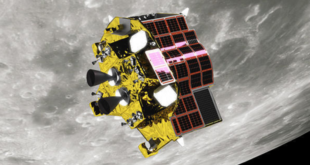
The head of the Iran Space Agency (ISA), Morteza Barari, has said that Iran is looking to open discussions with Russia about the possibility of sending an Iranian astronaut to the International Space Station (ISS), according to Iranian press reports.
Barari’s announcement echoes a similar statement made in early October 2019 by Iran’s Minister of Information and Communications Technology, Mohammad-Javad Azari Jahromi, who has also openly called for talks with Russia about training and sending an Iranian to the ISS.
“In order to send an astronaut explorer [to the ISS], we should launch negotiations with Russia. There are many explorers from different countries at the ISS. We are also primed at studying the possibility to send an astronaut to the space station in cooperation with other nations, for example Russia,” Barari said in an interview with Iran’s Mehr News Agency.
The announcement by Iranian officials follows a flurry of human spaceflight activity and talks with Russia in the Middle East. In late September 2019 the United Arab Emirates sent its first astronaut, Hazza Al Mansoori, to the ISS with Russian assistance. Russia is also known to have offered similar astronaut training and launch services to Bahrain, Saudi Arabia, and Turkey.
On his state visits to Saudi Arabia and the UAE in mid-October 2019, Russian President Vladimir Putin reiterated Russia’s pledge to assist those countries in their space ambitions.
Often left unmentioned in much of the regional coverage of Russia’s offers to send Arab astronauts to the ISS is the fact that Moscow expects countries to pay for their astronaut’s training, launch, and other expenses. The cost of sending an individual for rigorous astronaut training, launch, stay on the ISS, and return to Earth can run into tens of millions of dollars.
For countries like Bahrain, Saudi Arabia, and the UAE this kind of expenditure can be afforded and justified to their respective publics.
Egypt has also publicly expressed an interest to send one of its citizens to the ISS with Russian help, but questions as to whether Cairo can afford this kind of mission or whether Russia is willing to do so for free remains unknown.
For Iranian ambitions to send an astronaut to the ISS, the issue is not just one of affordability given the parlous state of Iran’s economy due to chronic mismanagement and the international sanctions regime. Rather, the very sanctions themselves would likely prevent Russia from allowing Iran to send one of its citizens to the ISS. Even though an Iranian astronaut would stay on board the Russian ISS module (effectively Russian sovereign territory), they would have to interact with other fellow astronauts from countries that are sanctioning Iran and, in the course of their ISS duties, go to the ISS modules owned and operated by the United States, European Space Agency, and Japan.
Even if Russia wanted to send an Iranian astronaut to the ISS, it is more than likely that other ISS international partners would strongly oppose such a mission.
 SpaceWatch.Global An independent perspective on space
SpaceWatch.Global An independent perspective on space




